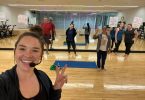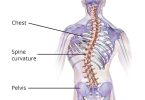Many people hold the popular view that ‘sport builds character’ and helps children learn life skills. A host of positive factors have been associated with sport participation, including improved self-esteem, emotional regulation, problem-solving, goal attainment, social skills, and academic performance. But on the other hand, there is evidence that shows youth sport participation can be associated with negative issues as well, such as aggression, breaking rules, and adults modeling inappropriate behaviors, among others. So what’s the deal?
The fact is that the outcomes of sport are dependent on the ways in which sport are delivered by parents and coaches and experienced by children. Different types of delivery and experiences will lead to different outcomes. Research shows that positive outcomes, such as life skills, must be directly taught to young athletes. They do not naturally occur just by playing a sport. In other words, the simple act of putting your child in sport will not necessarily teach them so-called ‘life skills’; it’s how your child experiences the sport situation, how they interpret it, digest it, and debrief it. Providing your young athlete with the support system required to do this is a key component, and sport performance psychology can help in this area.
A huge part of the work that I do with athletes is about interpreting and understanding the experiences they have in sport. Sport allows us to learn about what it means to work hard, set goals, succeed, and fail. Young athletes will experience these situations early on, and how they are supported in interpreting and understanding these experiences will have a profound impact on their ability to transfer these lessons to life.
It’s truly rewarding to help athletes succeed in sport, and even more rewarding when they can apply the skills and tools learned to their everyday life. The mother of a London-based athlete had the following to say about her daughter’s experience with me:
“My daughter really enjoyed meeting with Natascha and has truly benefited from talking with her,” she said. “But more importantly, Natascha has given my daughter the tools to cope with situations far beyond her sport, as well as tools she can use for life.”
[templatic_contentbox type=”normal” title=”Dr. Natascha Wesch”] Dr. Natascha Wesch is a Canadian Certified Counsellor (CCC) and a Mental Performance Consultant in private practice, who works with individual athletes, coaches, and teams of all levels and backgrounds. To learn more and to contact her, visit www.elitemindperformance.com or find her on Facebook: www.facebook.com/elitemindperformance [/templatic_contentbox]






